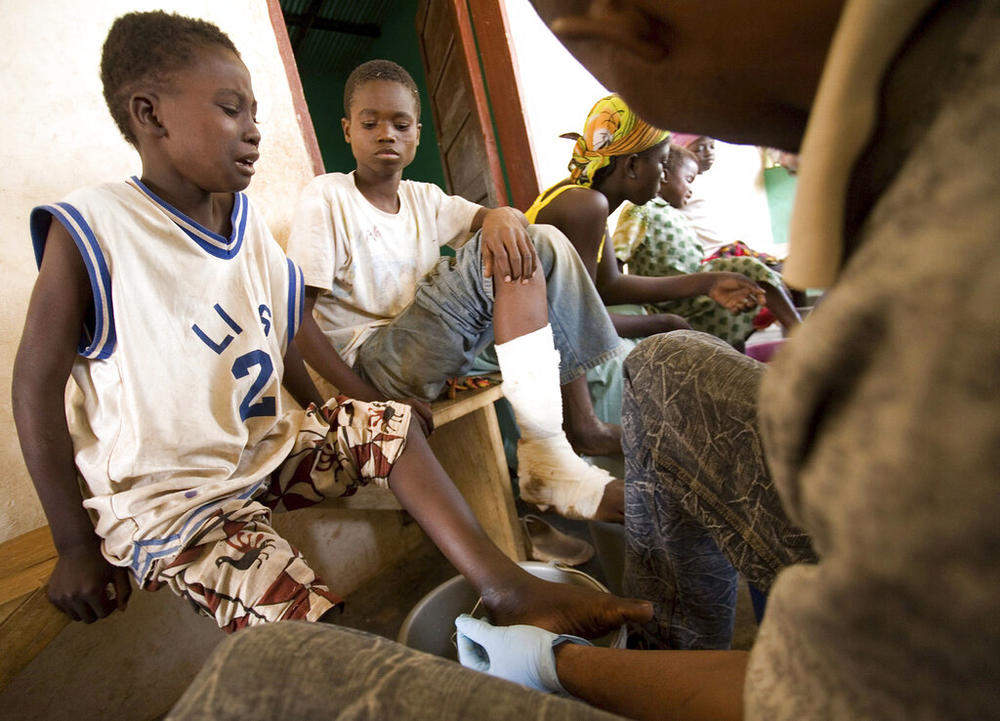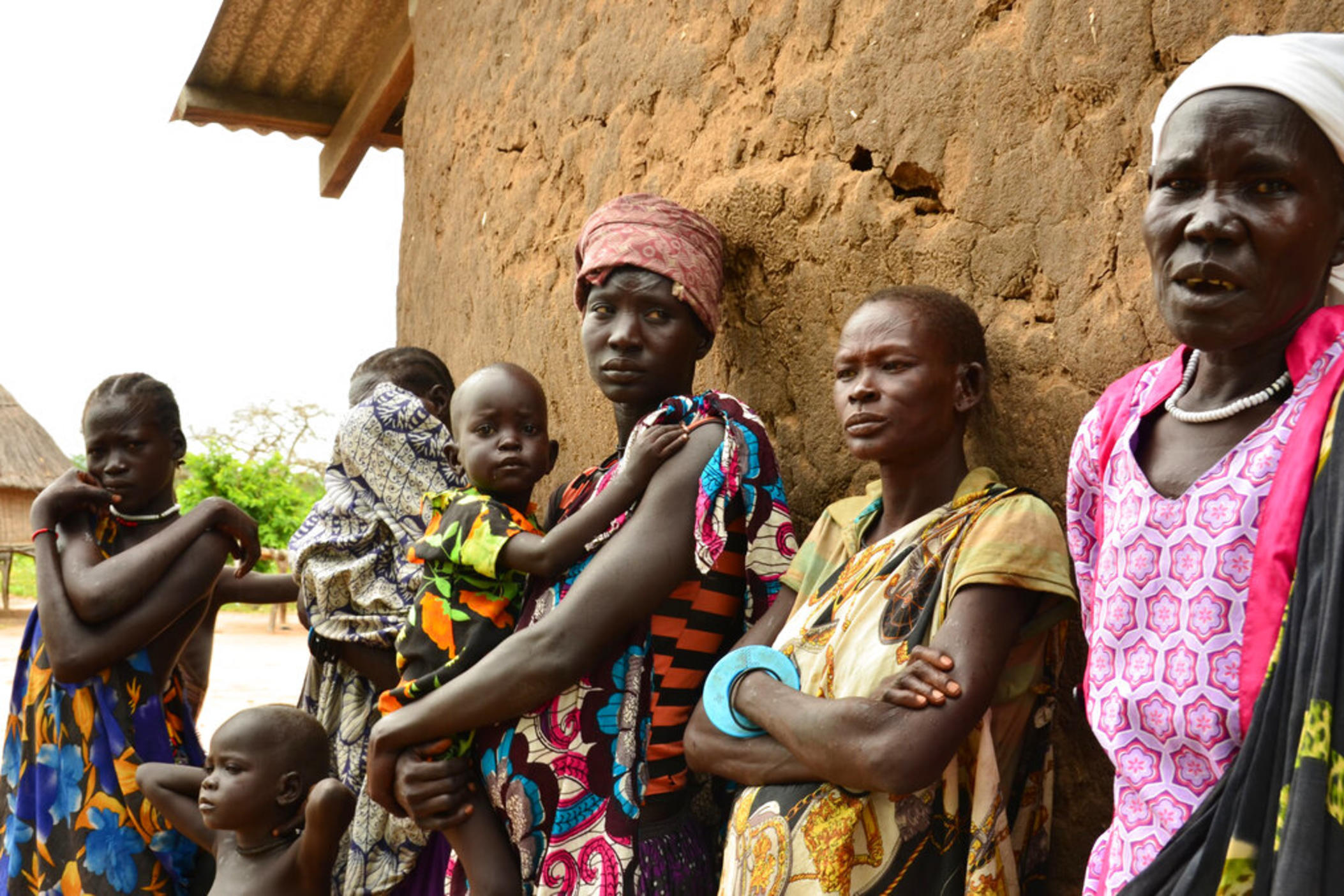
Caption
Lashidu Wahabu, 7, left, cries as a health worker extracts a Guinea worm from his ankle at a containment center in Savelugu, Ghana, Friday, March 9, 2007. The number of people infected with Guinea worm dropped to just over a dozen worldwide in 2021 as health workers try to eradicate the disease.
Credit: AP Photo/Olivier Asselin, File


